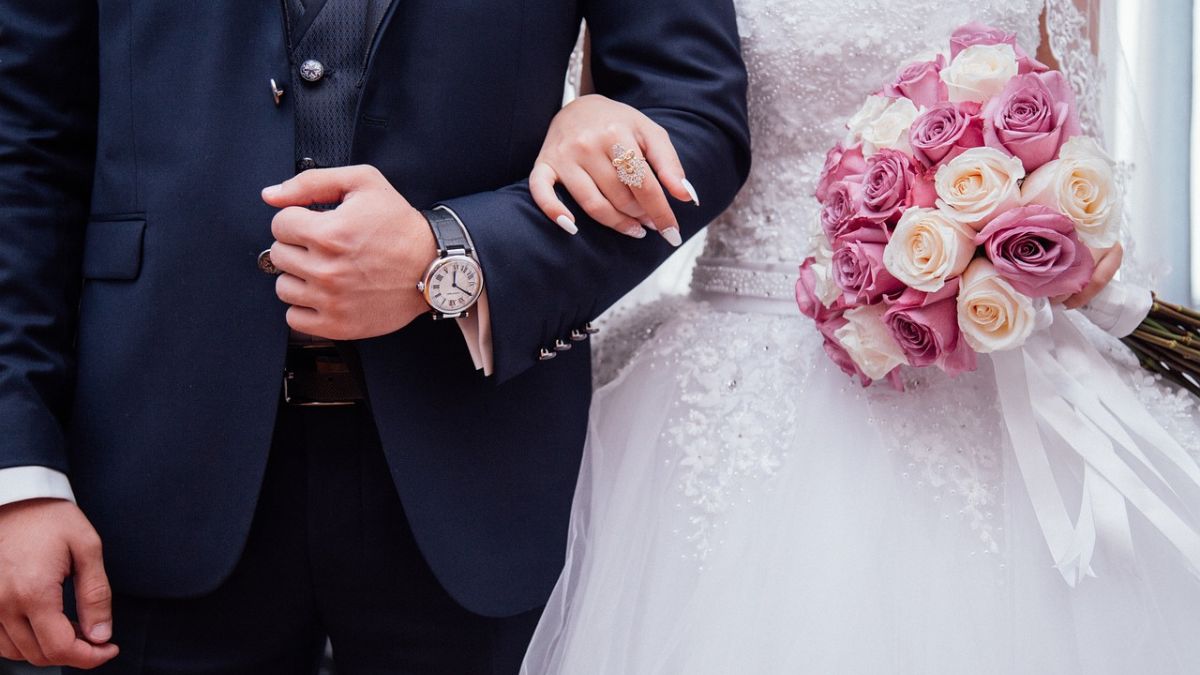Marriage is… the union of hearts…
However, in this Indonesian village, it is not the same.
An unsettling practice in Puncak has drawn severe criticism on the internet.
Young women from low-income families are getting into quick marriages with male tourists in return for money.
However, the practice has come under intense fire since several tourists are taking advantage of local women.
Here’s all we know about it.
Pleasure marriages
Pleasure marriages are short-term marriages between poor women and male tourists, primarily from the Middle East, in exchange for money.
According to the Los Angeles Times, the practice has emerged as a lucrative industry, bolstering tourism and the local economy, in Puncak, a popular destination in West Indonesia, which attracts Arab tourists.
In the beginning, visitors and local ladies were introduced by family members or friends.
The practice has become institutionalised, nevertheless, as a result of the expansion of companies that specialise in these arrangements.
Tourists are introduced to local ladies by the agencies in Kota Bunga, a highland resort.
Following a brief, informal wedding ceremony conducted with both parties’ consent, the man gives the woman a bride price.
During the visitor’s stay, the woman offers domestic and sexual services in exchange. The marriage is dissolved with the departure of the tourist.
Instances of such marriages
Impact Shorts
More ShortsCahaya, a 28-year-old Indonesian woman, talked about her harrowing experience of being a temporary wife. She revealed to the LA Times that she has married West Asian visitors more than fifteen times.
Her first husband, a 50-year-old Saudi Arabian, paid a bride price of $850 (about Rs 71,400), but she only got half of that amount after officials and agents deducted their cut. The man left for home five days after the wedding, and they were officially “divorced.”
The report claims that Cahaya had already been married once, at the age of 13, when she discovered the practice. She was forced into it by her grandparents. After four years, her husband filed for divorce, leaving her to raise their young daughter on her own without any financial assistance. She thought about working at general stores or factories producing shoes, but the pay wasn’t enough.
Cahaya revealed that she earns between $300 and $500 per marriage, which barely covers her rent and supports her ailing grandparents.
“I wanted so badly to help my mother and my family financially. They have no idea about this. I would die if they knew," she told LA Times.
After being married for at least 20 times, Nisa, another lady, managed to escape this pattern. She married an Indonesian immigration officer, and began a new life together. Nisa made a promise to never go back to her history.
A part-time Indonesian entrepreneur, Budi Priana, first learnt about pleasure marriages three decades ago when West Asian tourists he was showing about sought for assistance in locating temporary brides.
After a while, he began using marriage brokers to match visitors and prospective wives with employers, increasing his income by driving, translating, operating an internet café, and selling frozen meatballs.
He said the agents he knows have seen their business expand in recent years, with some arranging as many as 25 marriages a month. Sometimes Budi, 55, gets 10 per cent of the dowry for driving and providing interpretation. However, he emphasised that he is doing his best to safeguard women and assist them in finding employment.
“There are always new girls contacting me looking for contract marriages, but I tell them I’m not an agent,” he told LA Times, adding, “The economy is getting worse, and they are so desperate to get jobs.”
Concerns
Serious questions are raised by this practice regarding the exploitation of weaker women, sex tourism, and the absence of safeguards for women’s rights.
The practice of pleasure weddings, or nikah mut’ah, has its origins in Shia Islam. Most scholars, however, deemed these unions “unacceptable.”
Additionally, these provisional agreements are not accepted by Indonesian law, which sets a 19-year-old marriage age.
They go against the core idea of marriage, which is to establish a solid, enduring family bond. There are penalties, jail time, and societal or religious consequences for breaking Indonesian marriage laws.
“People think the government shouldn’t intervene in religious affairs,” said Yayan, the Islamic family law expert, told the outlet, adding, “The state law doesn’t define the legitimacy of the marriage, because it is stipulated by religion. That is the problem.”
Critics and people on the internet have also slammed the practice, arguing that it perpetuates human trafficking, abuse, and exploitation, taking advantage of poverty-stricken communities.
“There is no legal protection whatsoever,” said Anindya Restuviani, program director for the activist organization Jakarta Feminist. “We have the law, but the implementation itself is very, very challenging.”
With inputs from agencies
)